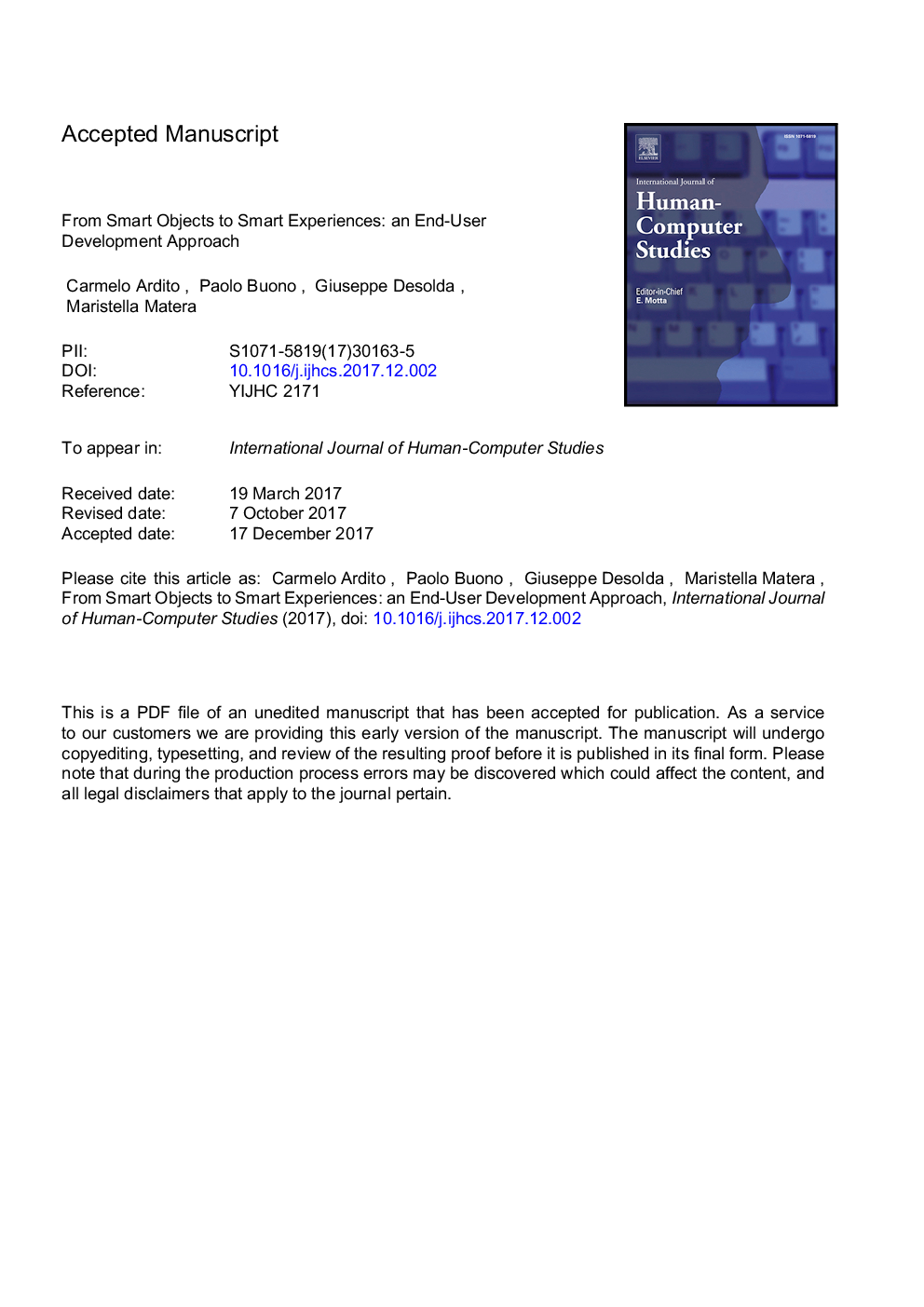| کد مقاله | کد نشریه | سال انتشار | مقاله انگلیسی | نسخه تمام متن |
|---|---|---|---|---|
| 6860973 | 1438940 | 2018 | 38 صفحه PDF | دانلود رایگان |
عنوان انگلیسی مقاله ISI
From smart objects to smart experiences: An end-user development approach
ترجمه فارسی عنوان
از اشیای هوشمند به تجربیات هوشمند: رویکرد توسعه نهایی کاربر
دانلود مقاله + سفارش ترجمه
دانلود مقاله ISI انگلیسی
رایگان برای ایرانیان
کلمات کلیدی
اینترنت چیزها، مدل سازی هوشمند تجربه بازدید هوشمند، میراث فرهنگی،
موضوعات مرتبط
مهندسی و علوم پایه
مهندسی کامپیوتر
هوش مصنوعی
چکیده انگلیسی
The growing availability of smart objects is stimulating researchers to investigate the Internet of Things (IoT) phenomenon from different perspectives. The potential of this technology is evident in different domains. In Cultural Heritage (CH), it may enhance access to CH collections, in order to ensure a more engaging visit experience and to increase the appropriation of CH content by visitors. So far, research on IoT has primarily focused on technical features of smart objects (e.g., how to program sensors and actuators), while there are very few approaches trying to facilitate the adoption of such a technology by end users. This lack limits the social and practical benefits of IoT; it creates barriers in all those usage scenarios where people would like to define the behavior of smart objects but they might not have the required programming skills. This is becoming evident in CH sites, where different stakeholders would benefit from managing ecosystems of interoperable smart objects to create enhanced visit experiences. This article presents a visual composition paradigm that allows non-programmers to synchronize the behavior of smart objects, thus determining more engaging user experiences. It discusses how the paradigm suites the need of curators and guides of CH sites to define smart visit experiences through which visitors can acquire CH content by interacting with the surrounding environment and the smart objects included in it. A serious game designed with professional guides of CH sites is used as a case study to show the potential of the presented approach.
ناشر
Database: Elsevier - ScienceDirect (ساینس دایرکت)
Journal: International Journal of Human-Computer Studies - Volume 114, June 2018, Pages 51-68
Journal: International Journal of Human-Computer Studies - Volume 114, June 2018, Pages 51-68
نویسندگان
Carmelo Ardito, Paolo Buono, Giuseppe Desolda, Maristella Matera,
